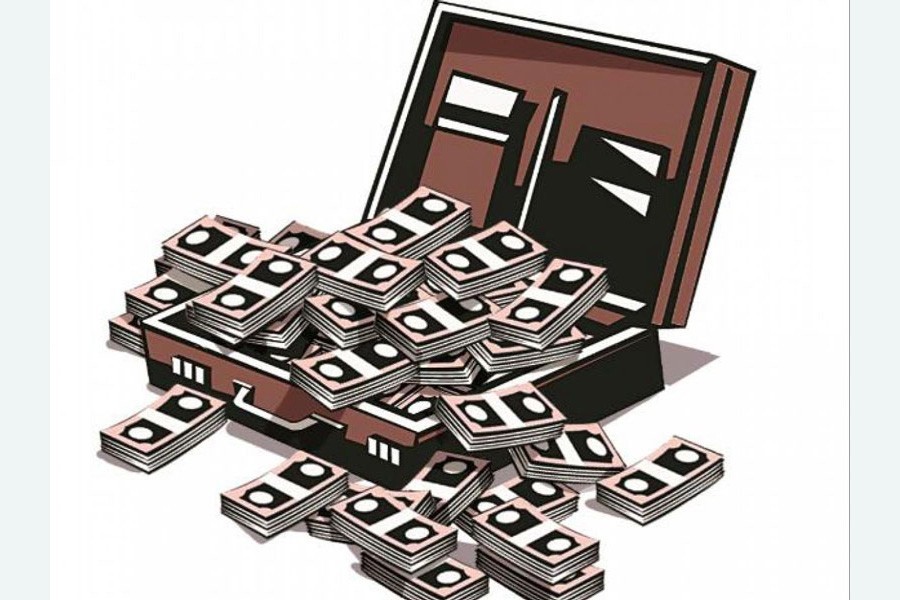A news story published in this paper some days back on the possibility of continuing the special facility for legalizing undisclosed funds in the next financial year (FY) must have disheartened many who have opposed it.
The Finance Bill-2021 that was placed in parliament by the finance minister on June 03 last skipped the onetime facility to legalise undisclosed funds by paying a paltry 10 per cent tax. The government offered the opportunity in the budget for the outgoing financial year (FY) to lure the tainted money to the mainstream economy.
The move, however, faced vehement opposition from a section of business leaders and most economists when it was made a part of the finance bill for the outgoing FY. They decried the provision, alleging that it discriminated against the honest taxpayers. Yet the government ignored the criticism and offered the best facility to the holders of black money. The latter also did not disappoint the government as they legalised nearly Tk 145 billion until the middle of the last month. The amount is almost equivalent to the sum whitened during the past 15 years under several budgetary offers. There could also be a last-minute rush for disclosing the tainted money in the last week of this month.
The FE report in question has mentioned that there could be some changes in the conditions attached to the special facility in the event of its fresh incorporation in the finance bill for the next FY. The ongoing facility offers the two most attractive conditions. The one is a flat 10 per cent tax rate and the other is the guarantee that any agency will ask no question about the source/s of funds to be legalised. Any change in those could dampen the enthusiasm of the holders of undisclosed funds.
The question is whether the special facility has met the government's aim of luring the tainted money in large volume to the mainstream economy. No denying that some people have legalised the largest amount of undisclosed money during the outgoing fiscal.
But where has the money gone? A substantial amount of cash, reportedly, has been legalised having no destination. A small part has gone to the stock market.
The government has also accrued some monetary gains---around Tk15billion in taxes.
But is it worth the criticism it has digested for being unfair to the honest taxpayers? Is it also morally or ethically justified to offer this kind of benefit to the holders of black money, who otherwise deserve punishment under the law of the land?
The officials of the Indian Revenue Service (IRS) conduct raids in the houses of top film stars, businesses and even politicians to locate hidden untaxed or black money. The IRS is one of the feared names among the holders of black money in India. People here are not familiar with this kind of raid. Nor do the holders of black money face any kind of legal action. Thus, one is free to hold black money as much as possible and show its power, be it in politics or some other place.
So, the government, instead of offering a special facility to legalise black money, should go after the holders of the same. Based on intelligence work, the taxmen need to conduct raids to locate black money, confiscate it and mete out punishment to its holders. The fear factor might generate far more benefit than what is gained through the special offer extended from time to time.


